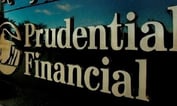No matter what the Trump administration decides to do about the Department of Labor’s fiduciary rule, financial advisors should abide by the spirit of the regulation. (President Donald Trump on Friday ordered the DOL to delay the implementation of its fiduciary rule.)
That was the sentiment of a panel of investment consultants on Thursday discussing the impact of the DOL rule on the investment process at this week’s TD Ameritrade LINC 2017 conference.
“The cat is out of the bag,” said Joe Cortese, senior consultant at at DiMeo Schneider & Associates. “Clients are now more educated about potential conflict of interest rules.”
They are paying more attention to transparency about fees and investment products, and that will continue even if the DOL doesn’t persist with the rule, said Jean-David Larson, director of regulatory and strategic initiatives at Russell Investments.
None of the five members of the panel, led by Scott Egner, manager of managed account sales at Ameritrade Institutional, suggested that advisors should count on a delay or repeal of the rule, which is due to take effect April 10 although Larson noted that this is a “time of ambiguity.”
(Related: Trump Tells DOL to Halt Fiduciary Rule; Dodd-Frank Targeted)
As ThinkAdvisor’s Melanie Waddell has reported, President Donald Trump is expected to issue an order directing the DOL to delay its fiduciary rule by six months or a year and has appointed an acting secretary of Labor while confirmation hearings for his chosen Labor secretary, Andrew Puzder, have been delayed.
In the meantime, panelists who spoke to an overflow crowd at the LINC conference offered several recommendations for advisors to comply with the rule:
Cortese recommended three “D” procesess to insure compliance with the fiduciary standard:
- Define what you’re doing for the client
- Document your initiatives and solutions, including why you chose particular investments
- Defend your decisions using that documentation
Kevin Malone, president and founder of Greenrock Research, advised, that whatever investment choices an advisor makes on behalf of clients need to be “clearly stated. Disclosure is the critical thing.”
“Everything is up for review,” said Egner. “Low cost doesn’t mean it’s the right choice for the client.”








 February 02, 2017 at 07:54 PM
February 02, 2017 at 07:54 PM










